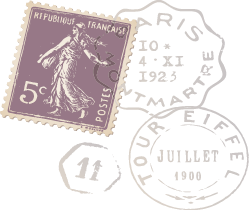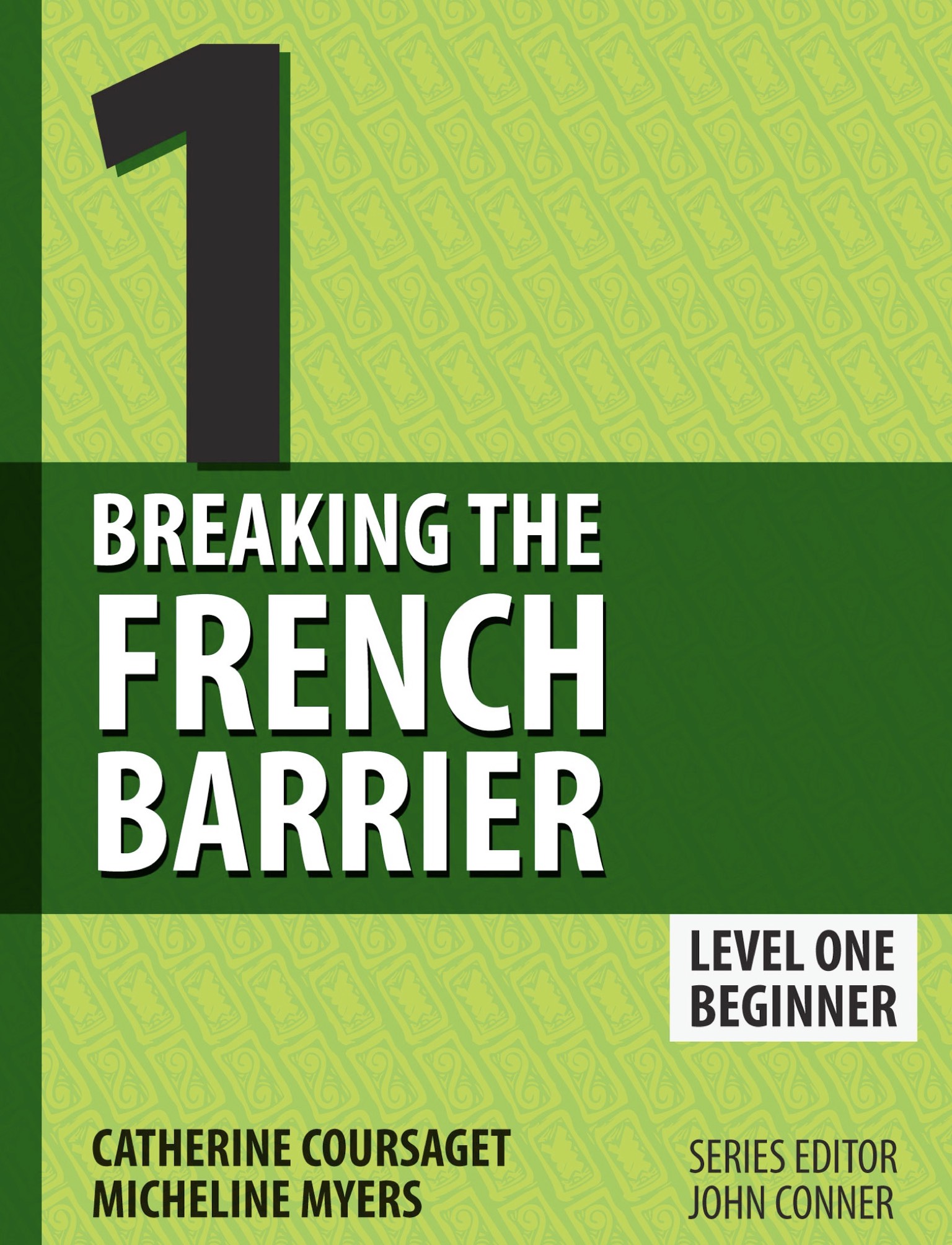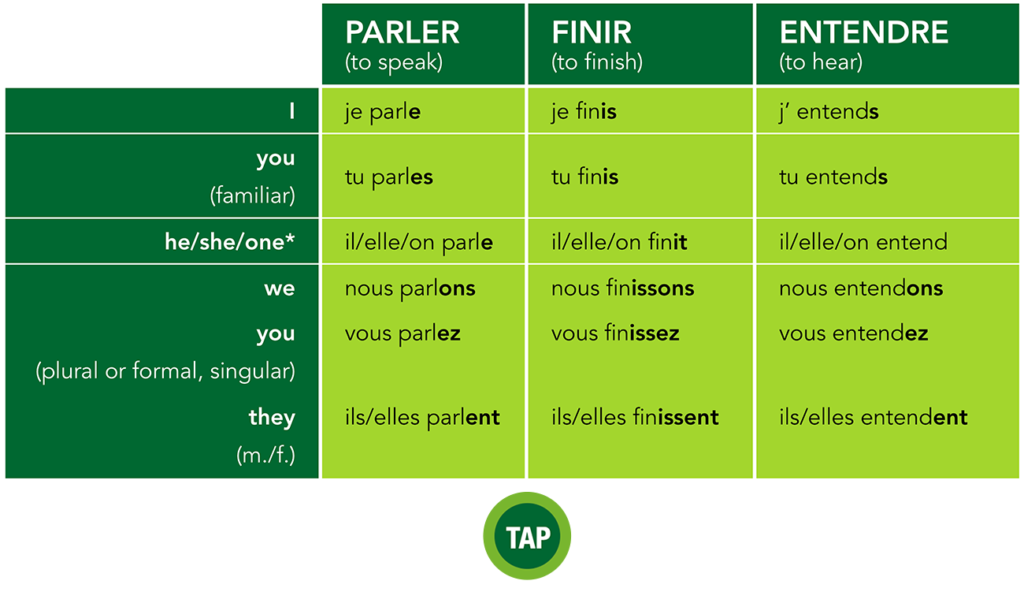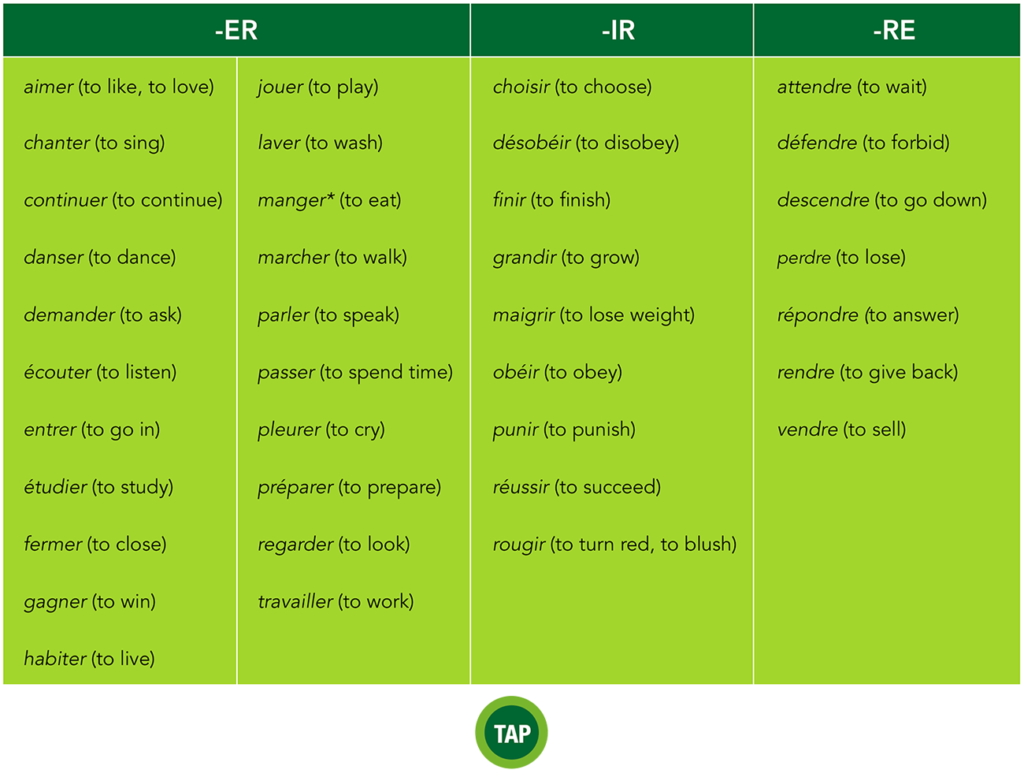LEÇON 1 / Beginner

REGULAR VERBS IN THE PRESENT TENSE
Verbs are the words in a sentence that narrate the action; they tell you what is going on.
The endings of a French verb correspond to a specific subject. Once you learn these endings, you will be ready to speak complete French sentences!
The infinitive of a verb is its simplest form, the starting point before it is conjugated or changed to correspond to a specific subject.
The present tense describes actions that are happening now, reports current conditions or traits, describes customary events, and also announces what may be happening in the immediate future.
There are three infinitive endings: –ER, –IR, and –RE. Each one has its own set of endings.
Here are the full conjugations of three regular verbs in the present tense:
* Subsequent conjugations will not list “on.” Just remember “on” is conjugated like “il” and “elle.”

Do you notice that –ER, –IR, and –RE verbs share some common endings but have different ones as well? Study the endings of the verbs carefully. They provide a clue to help you figure out who/what the subject is.
The following list contains some of the most frequently used verbs in the French language. All of these verbs follow the conjugation patterns presented above. Although you do not need to know the meanings of all these words just yet, you will be practicing them throughout this book. In time, they will become old friends.
*The “nous” form of the verb “manger” is irregular: “nous mangeons.”

EXAMPLES
Hélène parle beaucoup.
Hélène speaks a lot.
Je ne choisis pas le petit livre.
I don’t choose the little book.
Nous répondons: “Oui!”
We answer: “Yes!”
Vous enseignez le français?
Do you teach French?
Ils préparent une fête sympathique.
They prepare a nice party.
Mon papa prépare des crêpes dans le restaurant.
My dad prepares crepes in the restaurant.
Les artistes vendent beaucoup?
Do the artists sell a lot?
Les enfants obéissent à l’école.
The children obey at school.
Nous attendons l’autobus.
We wait for the bus.



